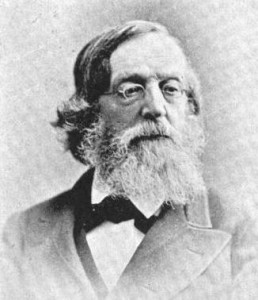Last week I closed my cheat sheet on hell by listing three “fortresses” on which people tend to plant their flag when it comes to developing a theology of post-mortem rewards and punishments. To review, they are:
1. Freedom
2. Justice
3. Love
However, as I was reflecting on the post yesterday, I realized a glaring omission from that list:
4. Truth
In my cheat sheet, I observed that those who place the highest value on justice or freedom tend to come out as Infernalists or Annihilationists, and those who place the highest value on love eventually arrive at some form of Universalism. I was quick to qualify that statement by saying it’s not that Infernalists and Annihilationists aren’t loving, and it certainly doesn’t mean Universalists don’t place a high value on freedom and justice. It’s just that people in various camps tend to define these terms and envision their fulfillment in very different ways.
Bingo. Defining terms. It seems to me that most seemingly intractable debates can be cleared up if we take this simple, preliminary step. Because the more I think about it, the more I realize you can pretty much begin at any one of these four points of departure–freedom, justice, love or truth–and wind up an Infernalist, Annihilationist or a Universalist. It all comes down to how you define each term. So I thought it might be useful to do a series of four blog posts that helps unpack the connection between how people in various camps define these terms and the theology of hell that flows out of those definitions.
So let’s begin with truth. I think it’s helpful to distinguish between those who define truth as “a set of indisputable propositions” vs. those who define truth along the lines of “that which sets us free.”
In the first case, planting your flag on truth–or, to be more accurate, your interpretation of the truth–can be a dangerous proposition, because it demands unanimity. If you believe that salvation equates to getting certain facts right, the smallest doubt can potentially undermine the entire system. So differences of opinion are no small matter. Those who disagree with you are met with hostility, censure, ostracism and, ultimately, violence. To put it in a way any Vulcan could appreciate, “The needs of the many outweigh the needs of the few or the one.” With so much riding on being right, it’s no surprise that the theology of hell that flows out of this view is essentially a projection of these fears. We assume that God must be just like us. So those who “get it right” go to heaven. Those who don’t go to hell. And those who have doubts keep quiet for fear of being scapegoated by their peers or, worst of all, by God.
In the second case, it’s assumed that most of what we know, we know in part. So we are going to get a lot of things wrong. Maybe even most things. But that’s okay, because mistakes are part of the growth process. As any creative person knows, perfectionism is the enemy of art. Fear of getting things wrong leads to paralysis. The same is true in every other area of life. Only when we are set free from fear can we truly create–and truly live. So those who hold to this view of truth will tend toward Universalism, because they assume that truth is less about conforming to a set of external propositions and more about being conformed to a way of being that reduces rather than heightens our fears. That doesn’t mean propositions don’t have a role to play. But in this view, they are a means to an end–freedom–rather than an end in themselves.
Short and to the point, which is more than you can say about most of my blog posts. Next, I’ll take a similar approach to competing definitions of “freedom.”











